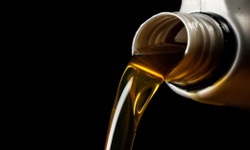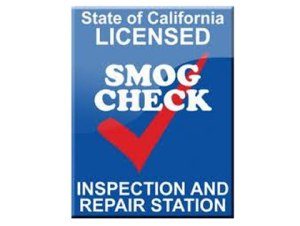Posted on 7/23/2013

Does Premium Oil Matter for Truckee drivers? Absolutely. Oil lubricates vital engine components, so using the best oil provides better protection and ultimately longer life of your engine. Driving at altitude makes using a quality product even more important as engines are taxed and climbing hills revs up the RPM. Higher temperatures require a lubricant that can hold up. Just as important is using a quality oil filter. A filter keeps contaminants from cycling through the engine. A lower quality product commonly used at a “Value Oil Change” depot just can’t hold up. Think of the last time you accidently purchased one-ply toilet paper or cheap paper towels and the performance you received from that value product - definitely not a great experience ... Additionally, be sure you are getting the correct weight of oil as specified by the owners manual. You can trust Quality Automotive Servicing to know the correct product as specified for you vehicle and to us ... read more
Posted on 1/10/2013
You should know that changing your engine oil regularly is one of the most important maintenance items you can perform on your vehicle - especially in the Truckee Lake Tahoe mountains. Irregular oil changes, or using the wrong product, is damaging to the engine and could result in a hefty repair bill down the road. How often to change your oil, a seemingly easy question, is not always that straightforward. Nearly every vehicle manufacturer has an oil change schedule for “normal” driving conditions and another for “severe” driving conditions. Here are some standards for “severe” driving conditions. Operate in dusty, wet or muddy terrain Frequent driving in stop and go traffic Repeated short trips without sufficient warm up Ambient temperature extremes, high and low Operating in mountainous/high altitude areas Trailer towing It le ... read more
Posted on 1/10/2013

Like it or not, one of the responsibilities of owning a vehicle in Truckee, CA includes keeping it emissions clean and not becoming a contributor to poor air quality. We guarantee our smog check and will retest for free if you don't pass the first time. With 32 million registered vehicles on the road in California, it is no wonder that our state has the strictest vehicle emissions standards in the country. The DMV reminds drivers on the annual registration renewal notice if a smog check is needed. For most vehicles six years or older, this is a mandatory test every two years. Diesel vehicles are now tested every year. Additionally, a vehicle brought in from out of sate is required to pass a smog test in order to be registered in California. Bill Greeno, Owner of Quality Automotive Servicing, states that about 90% of vehicles tested at the shop pass the the first time. He suggests you familiarize yourself with some of the procedures ahea ... read more
Posted on 12/7/2012
While maintenance of your vehicle is a year round responsibility, the change of seasons is a critical time to be sure you are up to date on your maintenance and take care of a few winter specific items. Freezing temperatures, salt and sand on the roads, snowy/slushy conditions are just a few of the hazards you encounter each day you get behind the wheel. The last thing you need spoiling your holiday plans is an unnecessary roadside breakdown. Battery Starting a vehicle on a zero degree morning takes some major voltage from your battery. If you are experiencing any sluggishness or your battery is more than five years old, replace it with a new one. It’s only a matter of time before your morning schedule is hampered due to a no start. A battery test is available at your local maintenance and repair shop if you want to know how much life is left in your battery. When purchasing a battery, you usually get what you pay for ... read more
Posted on 12/5/2012
Flush intervals should be based off of the vehicle manufacturer's recommendation. A "life time" fluid should be interpreted to mean 120K miles. On the side of caution you may consider 100K miles and under "severe" conditions 80K miles